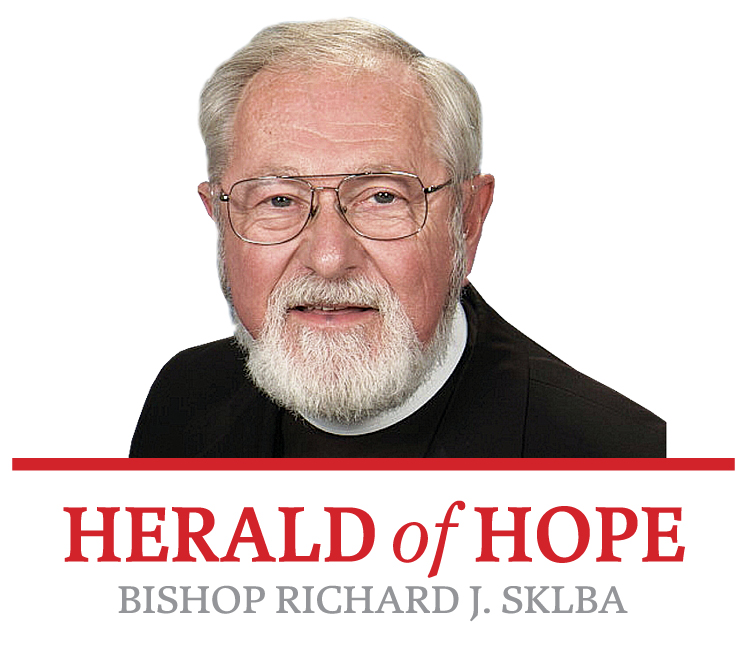Herald of Hope
At vespers in the venerable Roman Basilica of St. Paul outside the Walls on the Feast of the Conversion of Saint Paul, the then-recently elected (now saint) Pope John XXIII once surprised the gathered Cardinals by announcing that he planned to summon an ecumenical council. It was Jan. 25, 1959, hardly three months after his election as the successor to Pope Pius XII.
Pope John was viewed by many as merely a kind and gentle caretaker of the Church. The announcement caught most of the cardinals by surprise and without much response. The news was subsequently noted in the official Vatican newspaper almost as an afterthought on an inner page. No one could ever have guessed how much thought and prayer the new pope had already put into such a project.
As Peter Hebblethwaite noted in his magnificent book on the life of Pope John XXIII, John XXIII: Pope of the Council (1985), the Curia simply went on with its business, merely taking a few initial organizational moves, and presuming that there were many things to condemn in the world of that time, and everyone certainly knew what they were. They hardly remembered that Pope Pius XII had radically revised the ceremonies of Holy Week in 1955 and had even himself briefly pondered the possibility of summoning an ecumenical council.
One of the early official actions of now St. Pope John XXIII, after announcing the Second Vatican Council, was the establishment of a group with the task of seeking the “Signs of the Times.” Its official purpose was to study that particular moment in history and to determine the most pressing pastoral needs to which the Church Universal must respond if it were to be truly pastoral and Catholic.
Pope John evidently remembered the complaint of Jesus that his listeners could tell the weather by noting the direction of the wind or the day’s temperature, but didn’t seem to have a clue about the decisive present moment (the “kairos”) in which they were living (Luke 12:56), to which they were all asked to respond. The Holy Father’s question for the group was simply, “What is unique about this moment, and what response does it demand from the Church?”
The investigations of that committee searched the world to discover and to understand the major concerns and heartaches of the Church’s pastors and its people. After much discussion and endless committee/conciliar research, the results of those inquiries eventually surfaced as the Council’s Pastoral Constitution on “The Church and the Modern World,” officially known as “Gaudium et Spes/Joy and Hope.” That document was formally approved and promulgated on Dec. 7, 1965, in the very closing days of the final fourth session of the council. Early on, the idea had surfaced almost spontaneously from the minds and hearts of the pastors of the world. The idea had been nourished by the prayer and conversation of the bishops worldwide. It was a clear clarion call for pastoral reflection, prayer and action.
The final document listed five pastoral “problems of special urgency” for the Universal Church gathered in that solemn deliberation. They were: marriage and the family; human culture; life in its economic, social and political dimensions; the bonds between the family of nations; and international peace. Each of those topics was given careful consideration by the pastors of the world. In the course of endless preliminary discussions, the official non-Catholic observers had also made substantial contributions. The final document became the voice of a pastoral council to the people of its age.
My point in revisiting that experience of the Church universal in the 1960s is to suggest that the task of listening and speaking to its world is a perennial duty for people of faith. I’ve often thought that every parish council should have a special committee of prayerful folks, completely dedicated to listening carefully in order to determine the deepest concerns of the neighborhood. When people in corner bars and in the aisles of supermarkets stop to chat, what do they talk about on a regular basis, and what does the Gospel have to say to those concerns, and what should the parish do about it? It is precisely those topics – those hopes and fears …–which represent the “signs of our own times.” Pastoral folks need to think about those same questions and respond to the very real and local concerns of their people. They are marks of our moment in human history.
Having such a group to listen to the larger community and therefore to help formulate the annual goals of the parish council seems incredibly wise. Naming the three most significant concerns of the neighborhood, and responding with faith, wisdom, resources and action would seem to make each parish a truly vital part of its community. For more than 51 years since the final solemn conclusion of that council, I have imagined a Church driven by such pastoral questions, concerns and practices.

